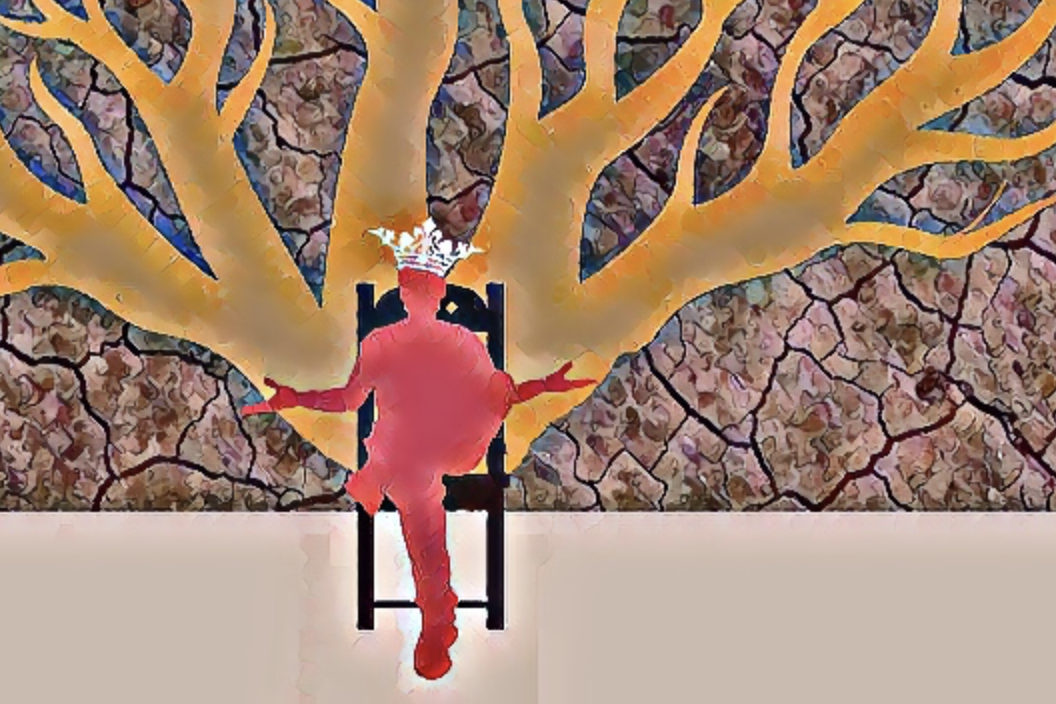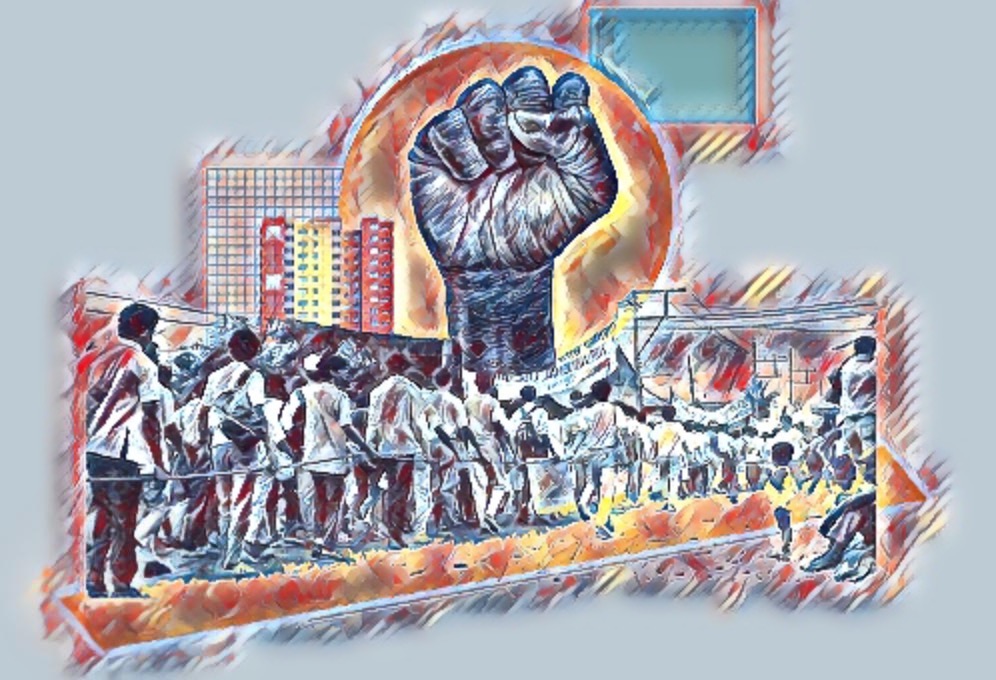Burdened by bloodlines: Is merit in the shadow of legacy in our fractured political era?

In an era drowning in cynicism, it's fashionable to write off political families, student activism, and the very idea of principled leadership. But let’s be honest: this fashionable skepticism often doubles as lazy thinking.
Recently, someone remarked that educated people–unless they come from political families or campus-based activist groups–don’t join the Bangladesh Nationalist Party (BNP) because the party “fails to attract them.”
The implication is that BNP is somehow beneath the country’s best and brightest. That political pedigree or student organizing are crutches for those incapable of independent thought.
Let’s cut through the fog: politics is more than a performance; it’s public service. And education is more than a certificate–it’s a mindset, a discipline, a responsibility. If degrees are the benchmark, BNP has no shortage of qualified minds.
The party counts among its ranks Western-educated technocrats, policy experts, economists, and lawyers–people who could have chosen quieter, more profitable lives but didn’t.
Many of these individuals didn’t grow up under BNP banners. They weren’t born into political dynasties. Yet they have offered the party their minds, their time, and their moral compass–often when it would have been easier to walk away. BNP has weathered storms because people with conviction chose to stay.
Yes, BNP has its flaws–as do all political parties in democracies still finding their footing. But dismissing its contributions is intellectually dishonest. It has helped shape Bangladesh’s democratic trajectory and championed policies that delivered tangible results.
It stood its ground when it mattered. And that matters.
Still, nostalgia isn’t a strategy. Reform is no longer optional–it is existential. If BNP wants to survive the next twenty years, it must rethink everything: structure, strategy, outreach. It must open its doors to reformers, dreamers, and dissenters–people not afraid to challenge orthodoxy from within.
The world is watching. So is the nation. So is history.
Which brings me now to the broader discomfort with political legacies. There’s a growing trend–especially among the commentariat–to conflate family background with intellectual laziness.
As if being born into a political family strips one of the right to think critically. As if legacy and intellect are mutually exclusive.
Let me say this plainly: political awareness can be inherited and earned. These are not contradictions.

Political legacy is not handed on a
silver platter
In political families, politics isn’t an extracurricular activity–it’s the air you breathe.
You watch your parents argue policy over dinner. You see the cost of public service–the toll it takes on time, relationships, even safety. You grow up debating ideas with people who don’t see the world the same way you do.
It isn’t indoctrination. It’s immersion. And yes, it teaches you things no textbook ever will–about compromise and responsibility.
Is it easy? Never. You’re judged more harshly. Expected to know more. To prove that your beliefs are yours and not inherited dogma. The bar is higher, and rightly so. But when legacy is combined with empathy and work ethic, it produces leadership.
So let’s stop pretending that political families are inherently suspect, or that education exists in a vacuum free of political meaning. And let’s stop pretending that BNP’s relevance is a relic of the past.
The future demands better leadership–BNP has a choice to be part of it. But that requires a political culture brave enough to evolve–and a public wise enough to recognize the difference between inherited power and earned conviction.
Contrary to popular narrative, members of political families are not handed power on a silver platter. More often, they are handed a burden. Legacy is not immunity from struggle–it’s a guarantee of it.
Sonia Gandhi was not born into Indian politics–she married into it, and paid for that decision with decades of grief, suspicion, and sacrifice. After the assassinations of both her mother-in-law and husband, she became a reluctant leader in one of the world’s most complex democracies. Her rise was of endurance rather than entitlement.
Rahul Gandhi, her son, has become a favorite punching bag for a generation of political cynics. But ridicule is easy; resilience isn’t. Despite relentless attacks–personal and political–he has remained committed to grassroots politics and democratic reform.
Benazir Bhutto’s story in Pakistan is one of courage laced with tragedy. Yes, she inherited a political name. But she also inherited exile, prison, and ultimately, martyrdom. Her life was spent stitching together a fractured country, only to be assassinated for daring to lead it.
Even in liberal democracies, legacy is no shortcut. Justin Trudeau faced decades of doubt about whether he was his father’s shadow or his own man. His rise came through retail politics, relentless public scrutiny, and his own recalibrated vision of progressive leadership rather than entitlement.
These are political dynasties forged in fire–where trauma is public, expectations are crushing, and success must be earned every day.

Beyond the veil of stars
The idea that intellect and inheritance cannot coexist is a shallow argument. In the real world, they often do. When legacy is paired with merit, with empathy and public service–it becomes a source of strength instead of a stain.
Student activism, too, deserves a second look.
It’s fashionable now to mock student leaders as noisy, naive, or performative. But history tells a different story–one where dorm room debates and campus uprisings have seeded global movements and statesmen.
My father led the Dhaka University Chhatra Union in the late 1960s, a time when student politics shaped the national conscience. He once told me that mastering the English debate circuit was as important as mastering policy–it taught clarity and persuasion.
This is not unique to Bangladesh. Bernie Sanders began as a student activist at the University of Chicago, organizing sit-ins against segregation. His moral clarity in those early years became the spine of his later campaigns for economic justice.
India’s Arun Jaitley, too, rose from the heat of student protest–becoming a fierce voice during the Emergency and later, the country’s Finance Minister. His policy legacy began in a student union hall.
Jacinda Ardern, one of the most empathetic and principled leaders of our time, cut her teeth in the youth wing of New Zealand’s Labour Party. Her leadership during national tragedies and a global pandemic wasn’t spontaneous–it was shaped by years of learning how to lead from below.
Australia’s Prime Minister, Anthony Albanese, began the same way–organizing on campus, fighting for fairness, and today steering national policy with that same commitment to inclusion.
So no, student politics is not the problem. The real question is whether we are investing in it seriously enough.
Are we creating spaces where future leaders can argue without violence, disagree without dehumanizing, and lead without arrogance?
Are we teaching them that politics is not performance, but responsibility? Are we raising the next generation of leaders with both courage and conscience?
That is the conversation worth having–not one that lazily dismisses legacy, or patronizes activism–but one that demands better from both.
Let’s dispense with a common illusion: most of the world’s most enduring leaders didn’t arrive with titles or trust funds. They weren’t handed the microphone–they earned the right to speak.
They began with public service, instead of public office. Not with campaigns, but with causes.
Whether through social work, activism, or organizing on the ground, their authority grew from action. Political recognition came later–almost as a byproduct.
What we often call “legacy” is in fact the residue of long, hard, unglamorous work. It reflects credibility built over time, not power inherited overnight. And that distinction is everything.

The faulty fault lines
When we reduce political legacy to surname or spectacle, we erase the substance behind it: the movements mobilized, the injustices challenged, the communities served.
We forget that true leadership is not the start of a story–it is its outcome, and legacy is not a crown rather it is a footprint.
That context matters now more than ever, because we are living in a moment of disorientation. Wars are grinding on. Democracies are fraying. And the truth, once the bedrock of public life, is now routinely twisted to suit emotion over evidence.
We live in a post-truth era, where perception is curated and outrage is monetized. Social media doesn’t just inform–it distorts. What’s viral is often what’s false. Misinformation spreads faster than facts. Conspiracy competes with consensus.
And in this noisy, performative ecosystem, substance is too often drowned out by spectacle.
Nowhere is that more obvious than in the spectacle of celebrity politics.
Businessmen, actors, anchors, and sports stars are flooding political spaces–armed with followers, rather than any solid set of philosophies. Visibility has replaced vision. Many arrive with zero civic engagement, no public service record, and no moral grounding beyond brand management.
But politics is not marketing. It is not a mid-career detour or an ego project. It is a public trust.
If we allow public office to become just another platform for fame, then we shouldn’t be surprised when our institutions begin to perform rather than protect. In a time when complexity demands competence, we’re rewarding charisma over character. That is a dangerous trade.
What we need now is not louder voices, but wiser ones.
Because wisdom is no longer optional–it is essential. The world is too fragile, too fractured, for shallow ambition. We need leaders who ask before they answer. Who think before they posture.
Who know the difference between being visible and being valuable. We need clarity, not clout; empathy, not applause.
And this is where legacy–when paired with merit–can still matter. Because real political families, the ones forged in decades of service, know that leadership is not about arrival. It is about accountability.
It is not about inheriting a platform–it’s about honoring the people who gave you one.
In the end, it doesn't matter whether a leader comes from a political family or from none at all. What matters is whether they understand that leadership is a promise. That politics is not a ladder–it is a burden carried for others.
We must demand better. We must ask harder questions of those who seek to represent us–about their values, their history, and their purpose. We must reassert the difference between leadership and opportunism.
Because only when we do that–only when we reward substance over surface–can legacy and merit walk forward together.
—
Shamaruh Mirza is an Australia based medical scientist with a deep passion for justice, dignity, and equality

